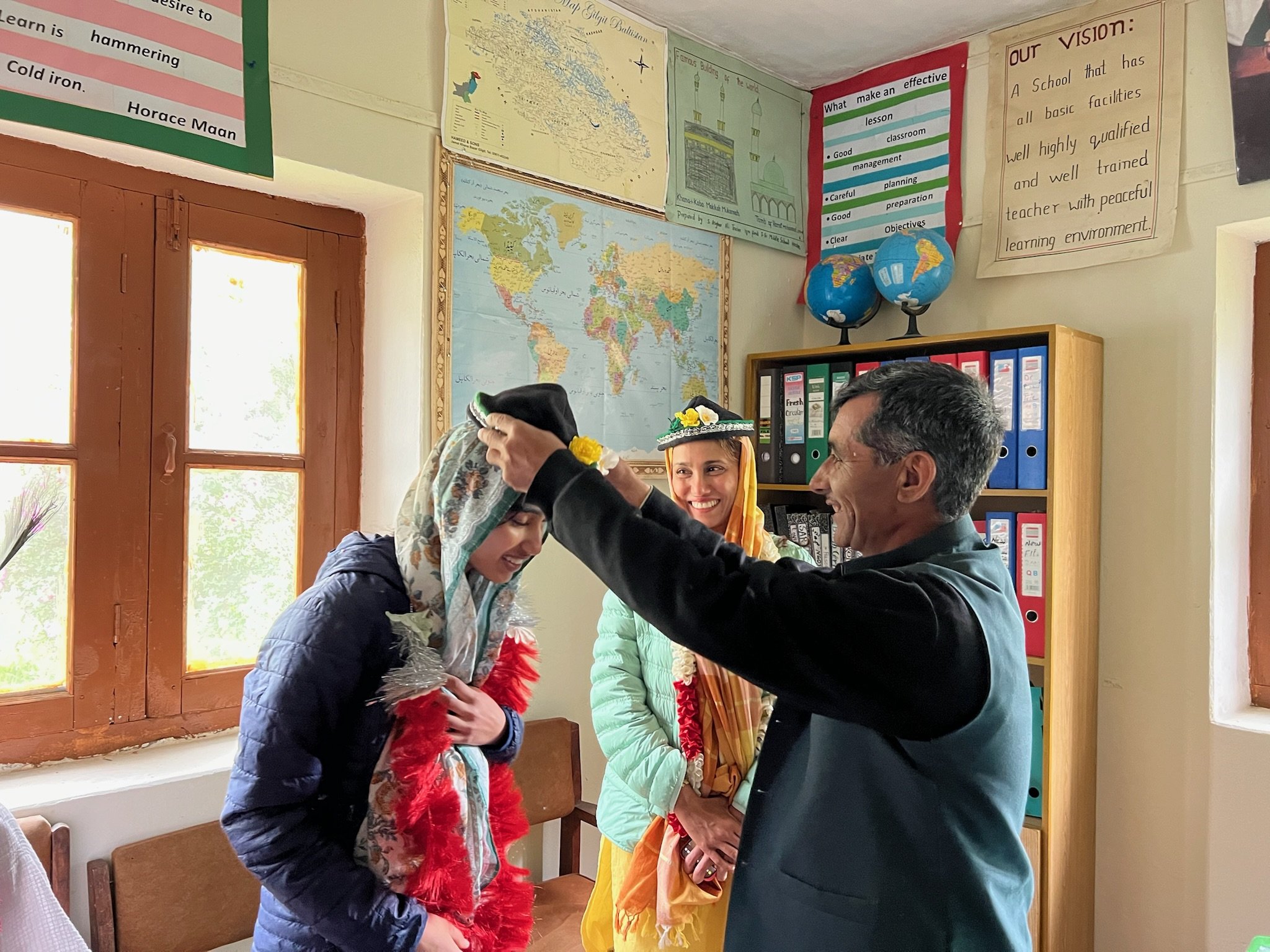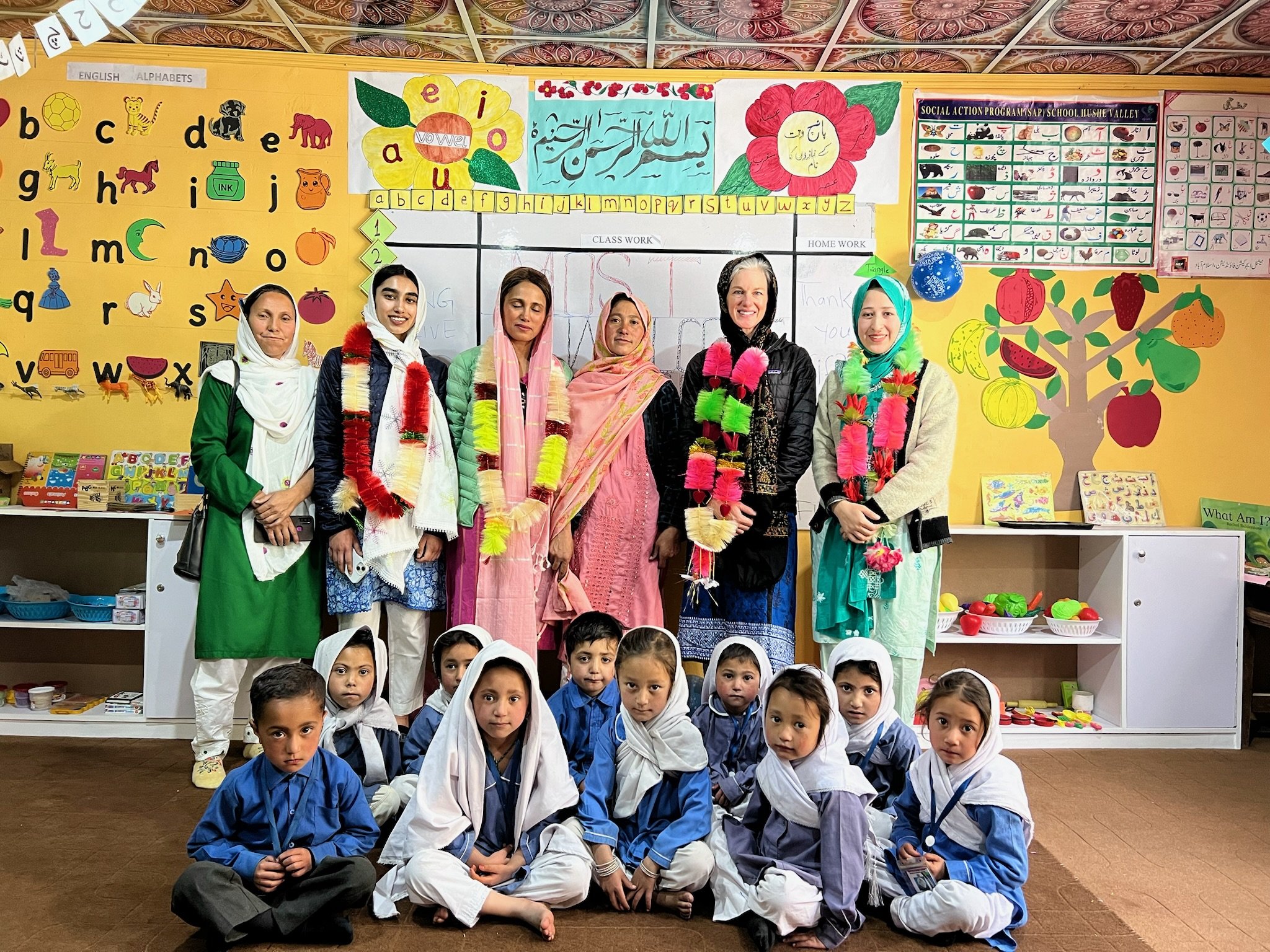Year Three
In June, we prepared Pads for Pakistan’s 2024 expedition, marking another successful year of progress. We built on the strong foundations of our previous efforts, refining our approach based on results and feedback.
This year, we continued our successful partnership with DfG and reconnected with IqraFund, strengthening our collaborative efforts.
A Focus on Sustainability
This year, our primary focus was sustainability. Pads for Pakistan is committed to ensuring that as many women and girls in rural Pakistan as possible have access to menstrual kits, like those provided by DfG. To enhance the sustainability, scalability, and impact of our program, we recognized the need to empower local communities to produce these kits independently.
Our strategy involved not only distributing menstrual kits but also providing materials and training to local women to create the kits themselves. This approach fosters economic empowerment by enabling women to generate income through kit production and sales, while also ensuring affordable access to menstrual products within their communities.
We launched a pilot workshop program in Husheh, a remote village six hours from Skardu. There, we partnered with Hajra, a local seamstress. Despite being in her early thirties, Hajra remains unmarried and has no children – due to the effects of Polio she survived as a child. Despite running a small business creating bags and purses with a few other women, the limited tourism and high costs have made these products inaccessible for the local community.
In our half-day workshop, we provided Hajra with DfG’s training materials, including a serger for her sewing machine, templates, and instructions for making the menstrual kits. We also gave her thirty premade kits for reference.
We are now working on establishing a reliable supply chain for the necessary fabric and liners, which are challenging to source. We plan to work with vendors directly in Pakistan, possibly Islamabad, to ship materials to the IqraFund office in Skardu, from where they can be distributed to the villages.









Husheh Schools
In Husheh, we had the opportunity to visit three IqraFund schools: a lower school, a middle school, and a high school.
The lower school stood out for its excellent facilities and vibrant educational environment, with walls adorned with educational posters. Uniquely, the school was entirely managed by women, including a female principal, reflecting a strong commitment to women's leadership.
The high school’s most pressing need was new textbooks, a need that Pads for Pakistan was able to address with funding.
Throughout our visits, we were met with warm hospitality. Students greeted us with flower petals and sang songs, creating a festive atmosphere. Our interactions included discussions with teachers and principals, followed by tea and biscuits. Each visit ended with thoughtful gifts, such as beautiful flower necklaces and handwoven shawls.
Hygiene Workshops
In Husheh, we had the chance to reconnect with Karima, the local healthcare worker we partnered with last year. Together, we conducted a hygiene workshop for about forty-five local mothers, many of whom brought their young children.
The workshop centered on the critical importance of handwashing and demonstrated effective handwashing techniques. In many rural communities in Pakistan, handwashing is not a common practice due to the scarcity of soap and a lack of education on the subject. As a result, it was sometimes challenging to capture everyone’s attention and encourage the adoption of this new habit. However, despite these challenges, the workshop made significant strides in laying the groundwork for improved public health practices in Husheh.
The Skardu Hostel
This year, we revisited the student hostel in Skardu where we had worked in 2023. Last year, we conducted discussion groups and hygiene workshops with the women and girls there. We were delighted to reconnect with many of them and hear that IqraFund had fulfilled one of their key requests by hiring an English teacher for the hostel.
The improvement in the girls' English was evident, and their confidence had significantly grown. They shared how beneficial the menstrual kits we distributed last year had been, and they enthusiastically talked about their academic achievements, future plans, and dreams. It was inspiring to see their progress and to hear about their aspirations for the future.
















